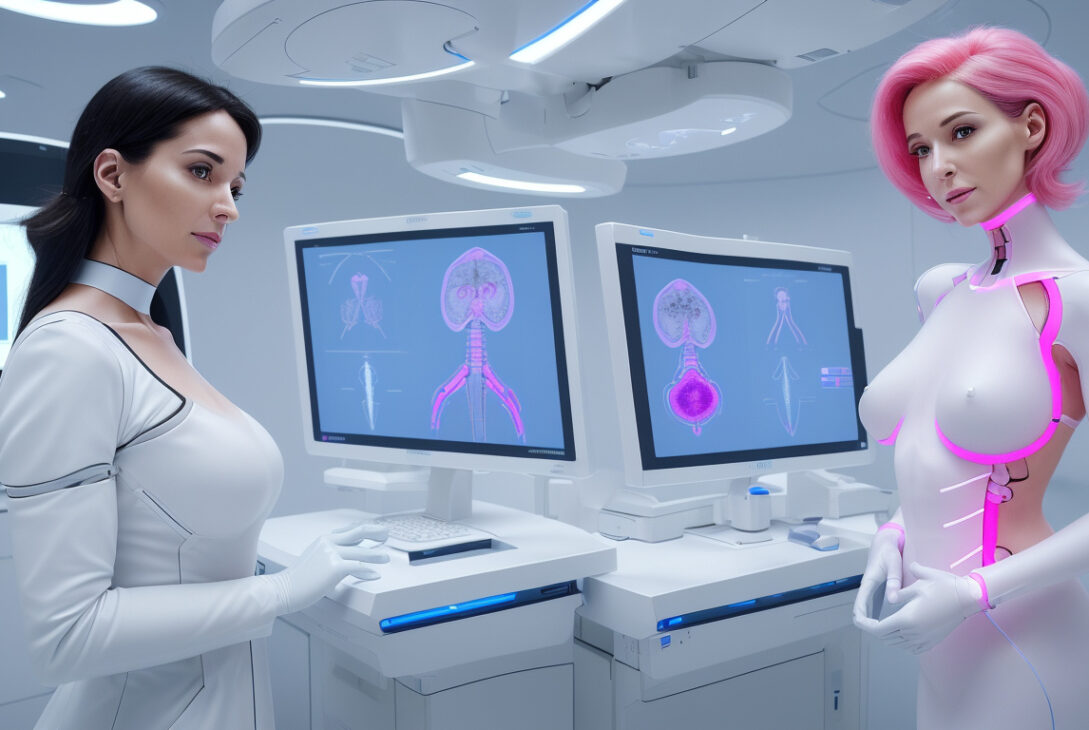AI-Based Breast Cancer Risk Technology Developed at WashU Medicine Receives FDA Breakthrough Device Designation
Software to accelerate approval and offer more accurate personalized risk predictions
July 29, 2025 — Researchers at Washington University School of Medicine (WashU Medicine) in St. Louis have developed an innovative artificial intelligence (AI)-based software that analyzes mammograms to deliver significantly improved predictions of an individual woman’s five-year risk of developing breast cancer. This cutting-edge technology, called Prognosia Breast, has recently been granted Breakthrough Device designation by the U.S. Food and Drug Administration (FDA), enabling an accelerated regulatory review aimed at faster clinical availability.
A Leap Forward in Breast Cancer Risk Prediction
Breast cancer remains a major health concern in the United States, where about one in eight women will be diagnosed with the disease during their lifetime. Early detection and prevention are critical to improving outcomes and reducing mortality. While mammography is widely used for screening existing tumors, current methods for estimating future breast cancer risk primarily rely on self-reported questionnaires that incorporate factors such as age, race, and family history — approaches that can be imprecise.
Prognosia Breast leverages AI to analyze mammogram images directly, producing a personalized absolute risk score estimating the likelihood that a woman will develop breast cancer within the next five years. Unlike existing models, this software applies advanced machine learning to both 2D full-field digital mammograms and 3D digital breast tomosynthesis images, making it compatible with the predominant imaging techniques used in clinical practice.
“This technology has the potential to transform breast cancer risk prediction worldwide, regardless of the imaging method used during screening,” said Dr. Graham A. Colditz, Niess-Gain Professor of Surgery at WashU Medicine and associate director of prevention and control at Siteman Cancer Center, who led the development efforts alongside Dr. Shu (Joy) Jiang, associate professor of surgery in the Division of Public Health Sciences at WashU Medicine.
Superior Accuracy and Clinical Relevance
The Prognosia Breast software was trained on a vast collection of mammograms from tens of thousands of women screened at Siteman Cancer Center, including both those who later developed breast cancer and those who did not. This extensive dataset enabled the system to learn to detect subtle, early indicators of tumor development that are not discernible even to expert radiologists.
Studies show that Prognosia Breast estimates breast cancer risk more than twice as accurately (2.2 times) compared to current questionnaire-based models. It generates an absolute five-year risk score aligned with national breast cancer incidence rates and U.S. guidelines, helping clinicians contextualize a woman’s risk in relation to the general population. According to guidelines from the American Society of Clinical Oncology and the U.S. Preventive Services Task Force, a five-year risk score of 3% or above is considered elevated, indicating the need for consideration of additional preventive strategies.
Streamlined Access Thanks to FDA Breakthrough Device Designation
The FDA’s Breakthrough Device designation allows promising medical devices deemed to offer significant improvements over existing approaches to undergo an expedited review process. This designation reflects the agency’s recognition of Prognosia Breast’s potential to enhance breast cancer detection and prevention substantially.
Dr. Doug E. Frantz, vice chancellor for innovation and commercialization at WashU, praised the recognition, stating, “This designation is a powerful endorsement of the dedication and vision of the researchers involved. It exemplifies WashU’s commitment to translating groundbreaking research into real-world technologies that improve patient care.”
Integration Into Clinical Practice and Future Plans
Prognosia Breast is designed to complement, not replace, radiologist assessments. Mammogram interpretations and standard clinical workflows will continue, with the new risk score providing additional actionable insights. Women identified as having elevated breast cancer risk can be referred to specialists for personalized counseling about options such as enhanced screening protocols—potentially including MRI—and risk-reducing medications like tamoxifen or endocrine therapy.
More than 75% of U.S. women aged 50 to 74 report receiving mammograms within the past two years, according to the Centers for Disease Control and Prevention. Incorporating Prognosia Breast’s risk assessment into routine mammography could therefore impact millions and improve early detection rates, crucial for reducing diagnoses at later, harder-to-treat stages.
The WashU team plans to initiate a clinical trial at Siteman Cancer Center to evaluate the effectiveness of combining Prognosia Breast’s risk scores with standard mammography screening in guiding clinical decision-making and patient outcomes. Additionally, future iterations of the software aim to analyze multiple mammograms over several years for each patient, potentially enhancing predictive accuracy further.
Entrepreneurial Collaboration and Commercialization
The technology has been licensed to Prognosia Inc., a startup co-founded in 2024 by Drs. Colditz and Jiang in partnership with WashU’s Office of Technology Management and BioGenerator Ventures. This collaboration brings together medical research, entrepreneurship, and commercialization expertise to expedite the delivery of Prognosia Breast to clinical settings.
“This breakthrough underscores the vital role of innovation ecosystems that support researchers in transforming novel scientific discoveries into accessible healthcare solutions,” emphasized Dr. Frantz.
About Washington University School of Medicine
WashU Medicine is a leading institution in biomedical research, education, and patient care, with key focuses on cancer prevention and control. The school’s affiliations include the renowned Siteman Cancer Center, dedicated to advancing cancer care.
For More Information
For patient referrals, clinical trial information, or to learn more about Prognosia Breast, contact Washington University School of Medicine or visit Prognosia Inc.’s website.
Julia Evangelou Strait contributed to this article.










